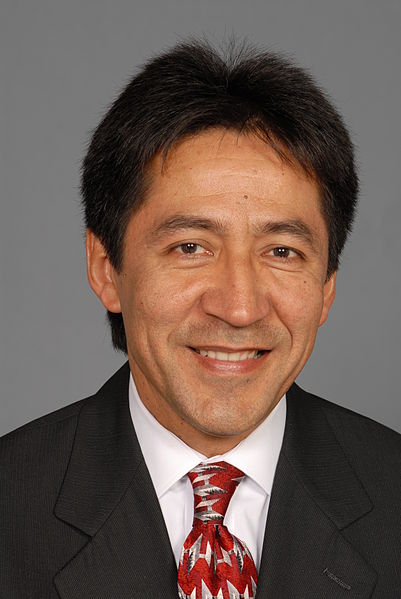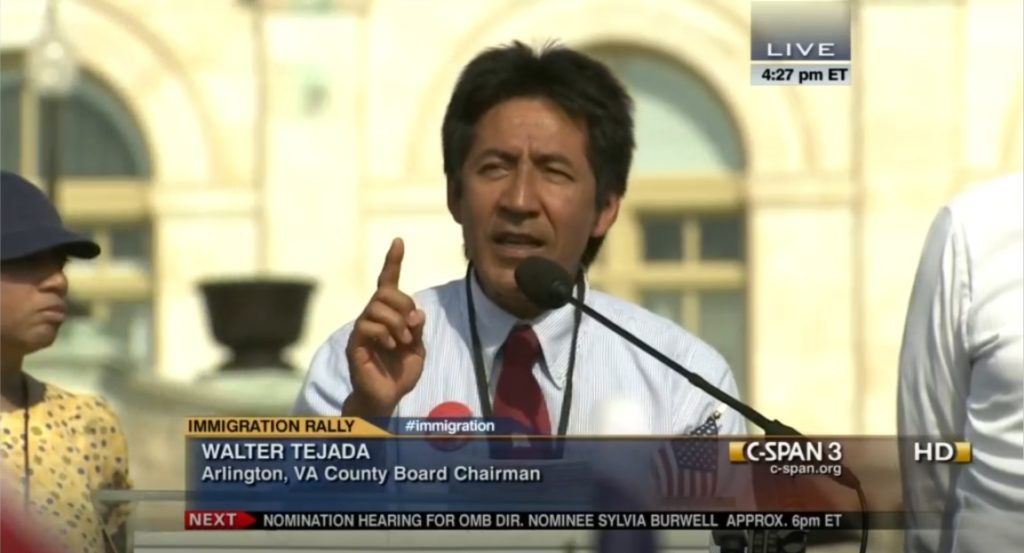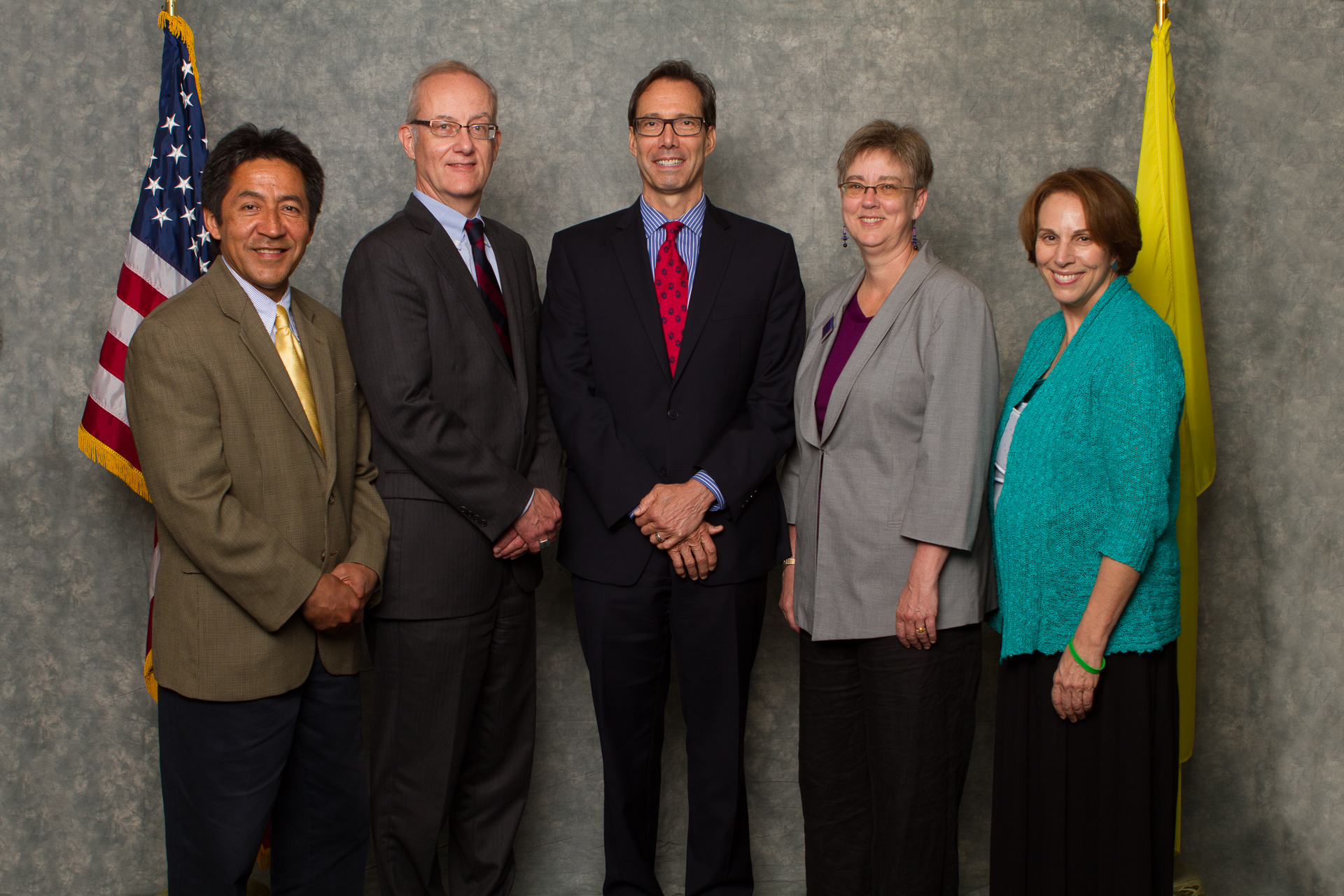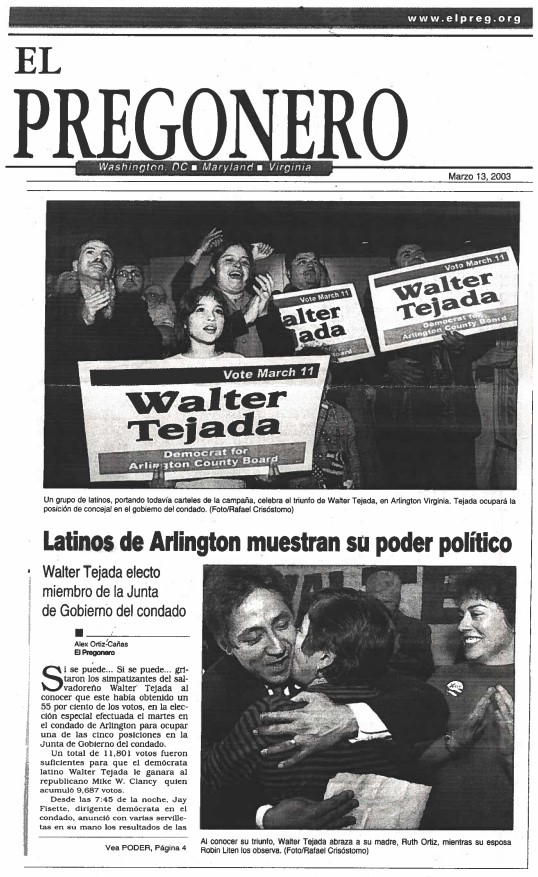Community Activist; Arlington County Board Member from 2003 - 2015

Oral histories are used to understand historical events, actors, and movements from the point of view of real people’s personal experiences.

Walter Tejada’s County Board portrait, circa 2007.
In 2003, J. Walter Tejada became the first person of Latin American heritage to be elected to the Arlington County Board, or to any governing body in Northern Virginia.
Tejada served as County Board Chair in 2008 and 2013.
Tejada was born in El Salvador and immigrated to the United States at age 13, first settling with his family in Brooklyn, New York, and later moving to Trenton, New Jersey. After attending college and playing soccer at Keystone Junior College and Mercer College, he eventually moved to Arlington in 1987.
Tejada got his start as an activist and organizer after witnessing inequities faced by members of the Latinx community. He initially worked in groups addressing fair housing, job opportunities, and the League of United Latin American Citizens (LULAC). He also helped to establish a Salvadoran festival in Arlington, starting in 1995, focusing on Salvadoran culture.
The front page of El Pregonero, the official Spanish-language newspaper of the Roman Catholic Archdiocese of Washington, D.C., on March 13, 2003, following Tejada’s election to the County Board.
In 2003, Tejada was elected to the Arlington County Board in a special election following the death of Board member Charles P. Monroe. Tejada defeated longtime GOP activist Mike W. Clancy in the contest.
During his time on the board, Tejada continued to advocate for immigrant and Spanish-speaking communities, and served on numerous task forces and groups, including as chair on the governor’s Latino Advisory Commission.

J. Walter Tejada speaking at the National Rally for Citizenship on the West Lawn of the Capitol on April 10, 2013. Image courtesy of C-SPAN.

From left to right: County Board members J. Walter Tejada, John Vihstadt, Jay Fisette, Mary Hynes and Libby Garvey in 2014.
Since his time in County government, he was appointed to the Metropolitan Washington Airports Authority Board of Directors and is president of the Virginia Latino Leaders Council.
In the following oral history interview, conducted prior to his election to the County Board, Tejada discusses his childhood, coming to Arlington, and his early work in activism. In these excerpts from the interview, he discusses first impressions of the County and his work with LULAC’S Council 4609, which encompasses Arlington.
This interview is available in full at the Center for Local History. Note: The audio for this interview is currently not available.
Narrator: J. Walter Tejada
Interviewer: Ingrid Kauffman
Date: October 27, 2000
J. Walter Tejada: One of the things I saw when I lived in DC - actually, one of the first things I recognized was that - actually since I started visiting Robin [Liten-Tejada] when she went to school here -- is that DC had a much larger Latino population than New Jersey, and I liked that. Remember, I mentioned that when we lived in New York there weren't that many Salvadorans at all, even when we lived in New Jersey, there was one person that was Salvadoran, and he lived like 10 miles away. It was odd that I came here and suddenly there was a Salvadoran population.
Ingrid Kauffman: What year was that?
WT: 1987. I thought, “this is great.” There were some restaurants; I hadn't eaten pupusas for years, which is one of my favorite Salvadoran dishes, just like almost every day. I saw this and it really piqued my interest. In fact, it was a determining point why I ended up moving here, when we were talking about what we were going to do with our lives. I'd come to visit and see all this and I liked that. The climate here, so many people from different backgrounds, different perspectives and accents, cultural activities - to me, it was like a paradise for these activities. When I was working in D.C. I also saw that the Latino community was really - first of all, there was no political power. Then - the community - not all but certainly a good portion of the community finds itself in a very tough socio-economic situation.
WT: Three things [LULAC Council 4609] did were voter registration, citizenship, and leadership development. That part I liked because it made it so broad for different things. I decided I was going to be involved in that aspect, because we would promote meetings, forums, community forums, where elected officials or public officials would meet with the community to address issues of concern with the community, sort of like putting a little bridge into what needed - the issues of importance. I started, and I would go to places and grab chairs, move them around, set up the coffee machine, make sure donuts were there.
We did forums on gang prevention activities, the educational system in Arlington, how it was being responsive to Latinos or not. We've done forums in the business community - what opportunities there could be to incorporate Latinos into the business world. We did citizenship workshops where we published that on a certain day people could come in with all their material that we would specify, like passport, proof of where they lived, proof where they worked, birth certificates for their kids, and helped them fill out these applications in order to apply to become citizens. We would have lawyer friends who would come and volunteer in these workshops so that we can help people.
The goal of the Arlington Voices project is to showcase the Center for Local History’s oral history collection in a publicly accessible and shareable way.
The Arlington Public Library began collecting oral histories of long-time residents in the 1970s, and since then the scope of the collection has expanded to capture the diverse voices of Arlington’s community. In 2016, staff members and volunteers recorded many additional hours of interviews, building the collection to 575 catalogued oral histories.
To browse our list of narrators indexed by interview subject, check out our community archive. To read a full transcript of an interview, visit the Center for Local History located at Central Library.
